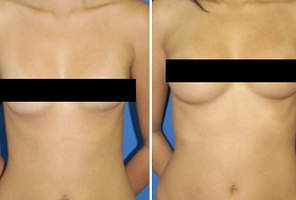Millions of people worldwide suffer from obesity that can be crippling and possibly life threatening. Sometimes, weight problems can be traced to eating disorders, or simply incredibly unhealthy lifestyles. Regardless of the causes, obesity can be a dangerous cycle that's very difficult to break - as a person gets more obese, exercise and avoiding overeating become harder. However, if the obesity problem isn't corrected, death is a very real possibility. One possible solution to this problem is laproscopic weight loss surgery.
A Minimally Invasive Surgery
Laproscopic surgery is a type of surgery that is designed to be minimally invasive. For a laproscopic weight loss surgery, a doctor will create five or six small holes in your chest and abdomen. Through these, the doctor will insert all the instruments he or she needs to perform the procedure, such as a light, a camera, and assorted surgical tools. This is an alternative to procedures where the doctor has to make several incisions to work on the procedure.
How a Gastric Bypass Works?
Gastric bypass is one weight loss surgery that can be performed laproscopically. In this procedure, a doctor will modify your digestive tract by turning the stomach into a much smaller version of itself. This mini-stomach can only hold about a cup of food, which helps to prevent overeating and makes a person full from eating very tiny meals. In addition, the surgeon will bypass a part of the small intestine, which causes the patient to absorb fewer calories from food. This results in very rapid weight loss.
Advantages of Laproscopic Weight Loss Surgery
Laproscopic weight loss surgery brings a few advantages with it. Since the procedure is minimally invasive, recovery time is reduced. This type of procedure also results in less scarring on the abdomen. There's also a much smaller risk of hernias, which can often occur after abdominal gastric bypass procedures. The hospital stay after a laproscopic weight loss surgery is usually no more than three days, and up to a month of additional recovery time away from work is usually recommended.
After the procedure, the surgeon and nutritionist will recommend a very strict diet for the patient to follow. It is very important for the patient's safety that this diet be followed, which consists of just liquids at first. Eventually, the diet will expand to soft foods and eventually the patient can return to a normal diet. Failing to adhere to this diet could endanger the surgery and the health of the gastric bypass recipient.

